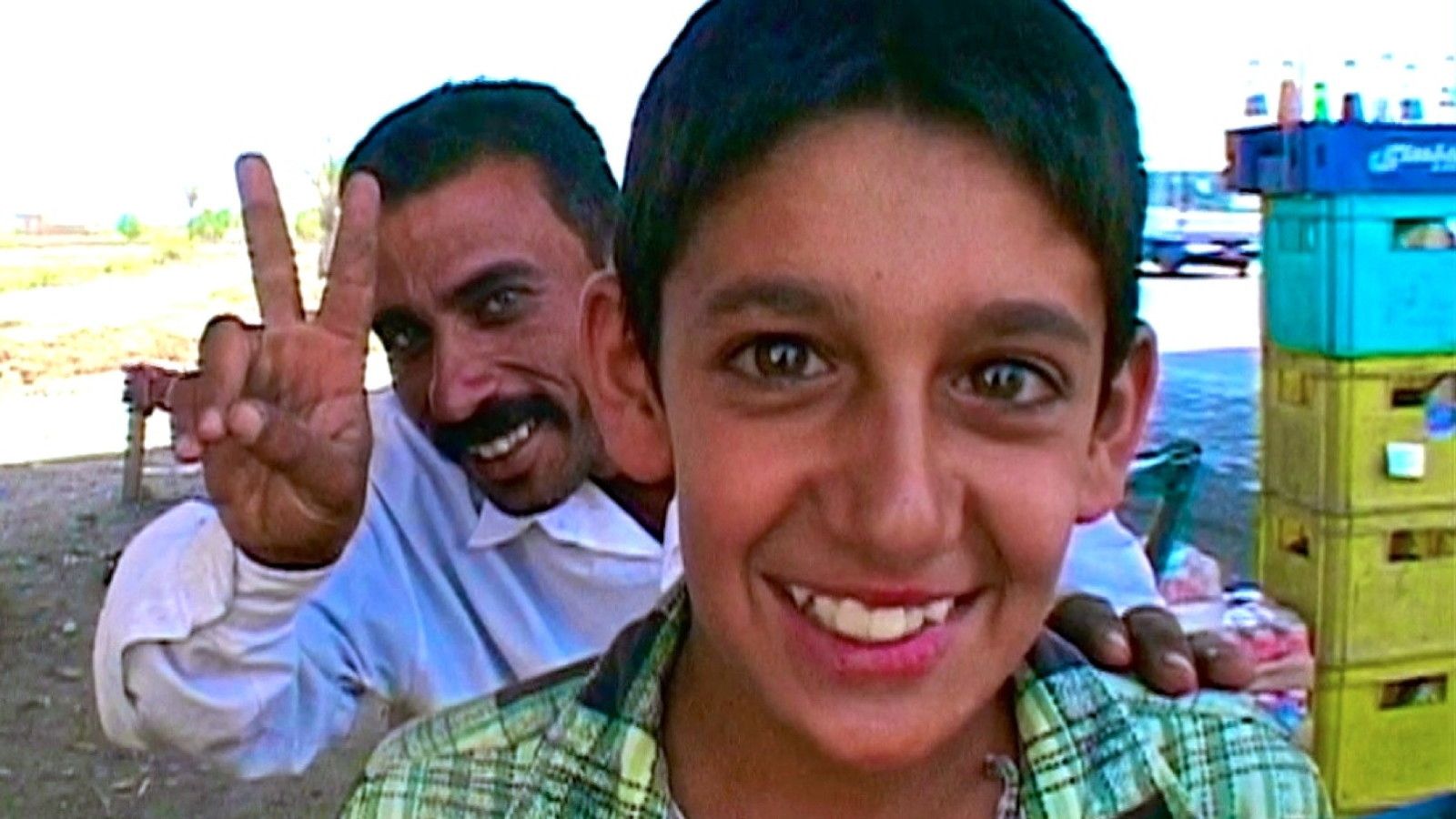Putting aside the fact that we now know the 2003 invasion of Iraq was an illegal war waged on false pretences and some embarrassingly tenuous link to 9/11, this film focuses on the smaller picture: an Iraqi family. The brothers, the in-laws, nieces and nephews of filmmaker Abbas Fahdel populate the screen during almost the entire running time, which stands at a whopping five hours and 34 minutes.
Meet Iraq’s Partridge Family
We watch this extended middle-class family as they prepare for the coming war, with evidence of the last one (and international sanctions) still everywhere. The film chronicles their lives in Baghdad, and the rural town of Hit, during the run-up to the 2003 war and aftermath that follows.
If a subject ever justified those five-plus hours of your time, it is this one.
Bonding with their brood
Without resorting to the kind of sledgehammer manipulation in propaganda like American Sniper, the film takes its time by gently immersing you in the everyday lives of these people. It’s a simple, recognisable existence and ultimately touching.
Your emotional investment in these people happens without any narrative devices; it’s simply the result of the time you spend with them.
The effect is such that you are left in no doubt that these people saw those events much more clearly than we ever could, that the real casualties of this mess were the social infrastructure, the pride of working people and the collective innocence of the Iraqi youth – their faces contributing to several sequences, filmed like still portraits.
In these sequences we are confronted only with heartbreakingly open faces, warm smiles, their uninhibited joy at being filmed, curious and playful.
Insights into Iraqi iniquity
Two points resonate throughout the film: that some of those faces we are introduced to are certainly not alive today (subtitles bluntly inform us of the fates of certain participants throughout); and that here was a cache of goodwill toward the occupiers, which due to a combination of incompetence, a lack of respect, single-minded greed and poor planning, was wasted – and most shamefully, left to fester – turning to resentment and distrust, thereby laying the foundation for the chaos we see today.
It’s an important film. Unfortunately, the running time will put off some, but the film screens in two manageable parts and your stamina will be greatly rewarded with a sobering glimpse into the Iraqi mindset and an absolutely unique perspective into the other side of this conflict and its ongoing repercussions.
‘Homeland: Iraq Year Zero’ is showing again at 9am at Grand Teatret on Saturday November 14, where there will be a chance to listen to and possibly meet the director.
A Middle Eastern breakfast and breaks will be included in the experience, which will continue past 3pm.













